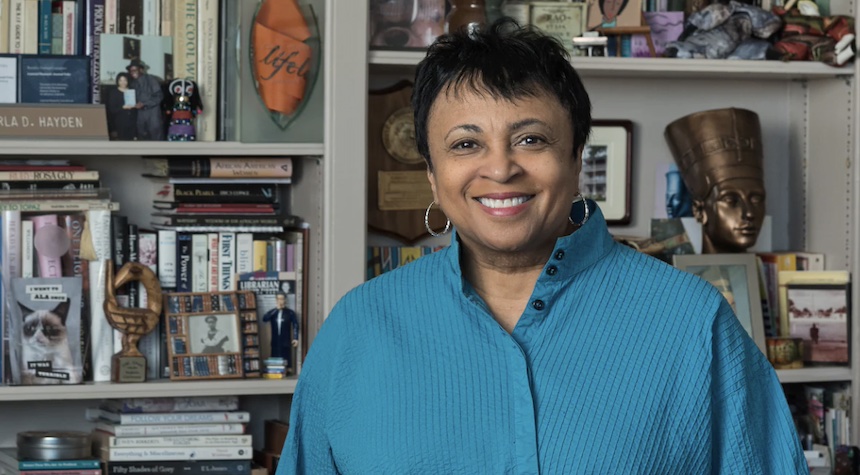In a sudden move, President Donald Trump has shown the door to Librarian of Congress Carla Hayden. This isn’t just about reshuffling the deck in Washington; it’s about the very essence of how we preserve and share our nation’s story.
Hayden, the first woman and African American to hold this esteemed position, received her walking papers via email – a cold dispatch in the digital age.
This dismissal comes on the heels of criticism from conservative groups, claiming Hayden was promoting what they call “radical” content. The stakes couldn’t be higher. We’re talking about the keeper of our national treasure trove of knowledge being ousted faster than a prairie dog spotting a hawk.
Are we watching the slow erosion of our institutions, as steady as the wearing down of the Alamo’s walls? From the Justice Department to the Pentagon, Trump’s administration has been cleaning house with the vigor of a spring-cleaning tornado.

The Library of Congress isn’t just any old building full of books. It’s the repository of our collective memory, housing everything from presidential papers to the sheet music that forms the soundtrack of America. Hayden’s tenure saw this venerable institution stretch its arms wider, reaching into rural communities and the digital frontier.
When the powers that be start tinkering with the custodians of our culture, it’s often a harbinger of deeper changes afoot. It’s as if someone’s trying to rewrite our national story without bothering to read the original text.
Democrats are crying foul, praising Hayden’s accomplishments and decrying the manner of her dismissal. But in the swirling dust of this political rodeo, we mustn’t lose sight of the bigger picture.
Libraries have long been the great equalizers in our society, offering knowledge and opportunity to all who darken their doors. As sure as the turning of the Earth, any threat to these bastions of learning is a threat to the very ideals that make America, well, America.
As this chapter closes on Hayden’s tenure, we’re left to ponder: What’s the next volume in our national narrative? Will it be a tale of progress and inclusion, or are we watching the slow dimming of the lights in our halls of wisdom?

